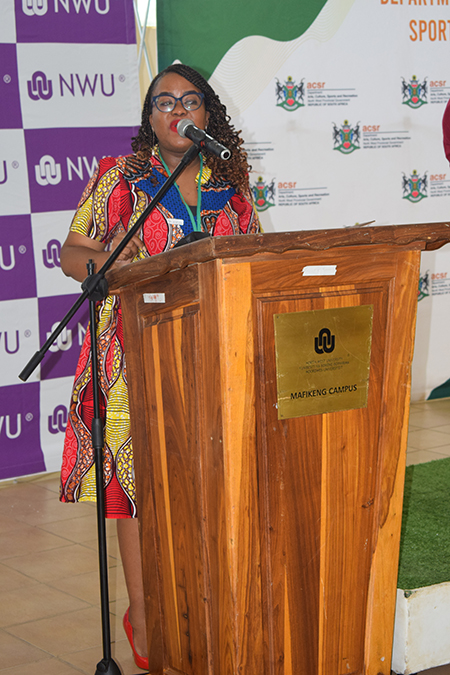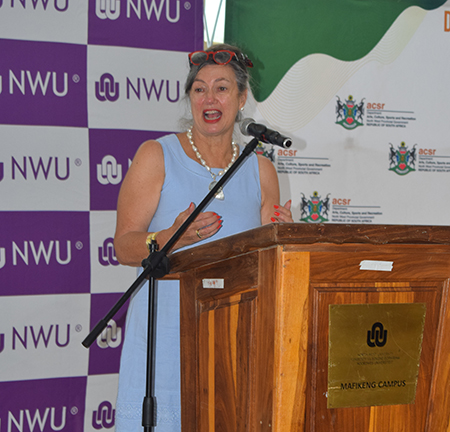On 24 February 2022 the North-West University’s (NWU’s) School of Languages, in collaboration with the North West Provincial Department of Arts, Culture, Sport and Recreation (ACSR), hosted an event on its Mahikeng Campus to celebrate of International Mother Language Day.
Keynote speaker at the event, ACSR MEC Galebekwe Tlhapi, said mother tongue education in South Africa remains a major issue that the nation should discuss.
“It is very important that our children should be able to receive education in their mother tongue if they and their parents wish to do so. Government is hard at work to ensure that the standard written forms of our indigenous languages are developed to the point where they can carry academic discourse effectively, and can function as fully-fledged languages of learning and teaching, she added.”
“As the ACSR we are taking measures to develop African languages, and we annually offer school-going learners the opportunity to further their education in the preservation of our indigenous languages through bursaries to study translation and terminography.
“Furthermore, the Pan South African Language Board is involved in promoting projects aimed at the development of spelling and orthography rules to standardise our official languages,” said MEC Tlhapi.
Speaking on this year's theme “Using Technology for Multilingual learning challenges and opportunities”, Dr Kea Seshoka, director of the NWU’s Language Directorate, said the focus of this year’s theme is to advance multilingual education based on the potential role of technology and support the development of quality teaching and learning for all.
“I want to reiterate that technology is key to the development of our languages. We need to collaborate and use technology to enhance our languages, thereby enabling the use of languages such as Setswana or Sesotho on our social media platforms,” she added.
According to Prof Sonia Swanepoel, deputy vice-chancellor for community engagement and Mahikeng Campus operations, the NWU has adopted a policy that gives expression to a commitment to implement constitutional provisions concerning multilingualism in South Africa.
“In the parameters of the principle of multilingualism, English, Setswana, Sesotho, and Afrikaans are employed as official languages of the NWU. Furthermore, without diminishing the use of English and Afrikaans, Setswana and Sesotho must be developed by the university as languages of communication as well as teaching and learning.
“Finally, each NWU faculty and support department must adopt and implement a language plan in consultation with management and Senate, which should be consistent with the policy guidelines,” she added.
Click here to watch the event.
More about International Mother Language Day
International Mother Language Day is celebrated annually on 21 February – as announced by the General Conference of the United Nation’s Scientific and Cultural Organisation (UNESCO) in November 1999.
UNESCO highlights the importance of Mother Language Day as part of the right to education, and also encourages member states to promote instruction in mother tongue language. It also encourages people to maintain knowledge of their mother language while learning and using more than one language.

Dr Kea Seshoka, director of the NWU’s Language Directorate, talking about the 2022 theme of International Mother Language Day.

Prof Sonia Swanepoel, deputy vice-chancellor for community engagement and Mahikeng Campus operations, addresses attendees at the Mother Language Day celebration.
